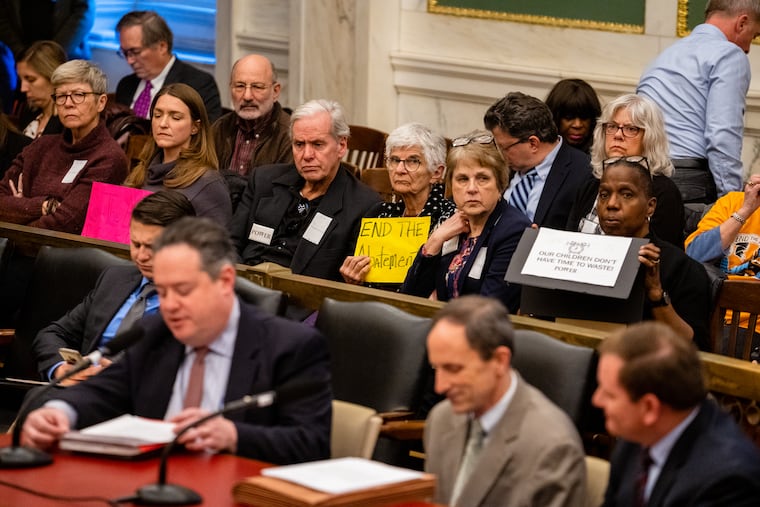Philly’s failure to end the 10-year tax abatement is no victory to fight poverty | Solomon Jones
The new plan from the mayor and City Council is a scam.

The mayor and City Council say they have a plan to reduce poverty in Philadelphia, and maybe that’s true — if the plan is to force the poor out of the neighborhoods by spending $400 million to boost gentrification.
Perhaps if the plan was to take the money and give it straight to the poor, I’d believe it was about ending poverty. But since it’s about continuing tax breaks to developers, jobs to the building trades, and placing a construction tax on everyone except those who can most afford to pay it — I think it’s a scam.
» READ MORE: Philly is set to create a new construction tax and make changes to a big property tax break
I hope I’m wrong, but after watching one program after another fail to benefit the impoverished, I don’t believe the poor will get any of this money. And if poverty is reduced as a result of this boondoggle, it will be because the giveaways in the so-called Neighborhood Preservation Initiative helped to force poor people out of the city.
The whole deal is predicated on delaying the plan to get rid of the 10-year tax abatement, a tax break that allows whiter, richer people to move into newly constructed houses while paying only a fraction of the property taxes they would normally pay. About 55% of property taxes are earmarked for the School District, but our city has decided that giving away money to well-heeled new residents is more important than funding schools where nearly 90% of students are Black and brown.
With the tax abatement firmly in place, developers can build more and jack up the prices of their properties since buyers get fat tax breaks in the end. All of this benefits the building trades unions that employ mostly white men because as long as the city is giving away the store to developers, union members continue to work.
In order to keep their hands in the cookie jar, developers had to make one compromise. They had to agree to a 1% construction tax that’s supposed to help put an antipoverty program in place. They agreed to it, but only after commercial properties were exempted from that tax.
Bottom line? If you’re rich enough to build commercial property in Philadelphia, don’t worry, you won’t be paying no stinking 1% construction tax. In the words of Donald Trump, that makes you smart. And, since the president is leaving us soon, let’s throw in one more Trumpism: Paying taxes, much like military service, must be for suckers and losers.
» READ MORE: Philly’s 10-year tax abatement and construction tax are back on the agenda. Here’s what’s different this time.
Which brings me to the pot of gold at the end of this very strange rainbow: the $400 million fund that’s supposed to help end poverty in Philadelphia. That money will come from bonds — which means it’s borrowed money that the already impoverished taxpayers of Philadelphia will have to pay back using the money that comes from a new 1% construction tax.
So, who’s going to get the $400 million? It depends on what we’re doing with it, and so far, we have very few concrete answers. We’re planning to build affordable housing, which is great for the building trades unions since big city-funded construction work goes to them. But unless you’re someone whose savings, credit score, salary, and work history will allow you to afford a down payment and qualify for a mortgage, getting into that so-called affordable housing might just be a pipe dream.
» READ MORE: How Philadelphia finally changed the loved and loathed 10-year tax abatement
And more luck for high earners: Not all city programs that deal with housing have income guidelines limiting them to poor people. The Philly First Home Program has a pretty generous income requirement. You can make around $81,000 as a single person, or $115,000 as a family of four, and still qualify. Where I come from, that’s not poor, but hey, who’s counting?
The $400 million will probably also pay for some rental assistance, which is great, but again, if you can’t pay your rent, maybe the rent isn’t the problem. Maybe what you need is a better job.
In short, borrowing $400 million and claiming you want to use it to end poverty when much of that money goes to everyone but the impoverished is a sucker’s game. And I don’t want our city to play it anymore.